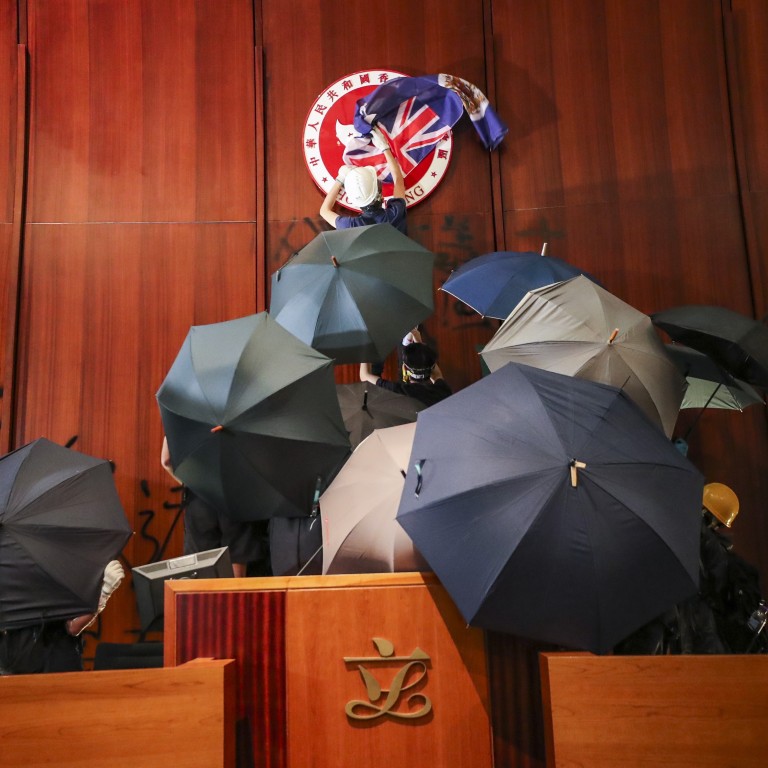
Four key areas where Hong Kong’s protest movement has come up short
- As the protests gain more traction globally,it’s important to take a step back and recognise some of their shortcomings
First, violent attacks on symbols of governmental authority have only occurred during revolutions in modern history, especially when extreme economic depression hits or a majority is literally starving. This is because revolutions are a last resort for political change, since they heavily damage the authority of the government thereafter. The siege of Hong Kong’s legislature is a strategy disproportionate to the issue at hand – one bill – and potentially lays the foundation for a tyranny of the masses down the road: when a large group exerts force for any issue, the government will capitulate to their demands. This sets a precedent for potentially passing bills that disfavour minorities in the future, as with President Donald Trump’s move to ban Muslims from entering the US in 2017.
Second, the protests have enlisted minors, who were even permitted to skip classes by the Professional Teachers’ Union. As a colleague told me, her son was urged to attend the protest by his teachers at a New Territories school, being permitted to skip a test and automatically assigned a passing grade – all of which was done without parental consent or even notification.
Decades of social science research warns that abandoning education mortgages away our future. Minors are too vulnerable in every way and not knowledgeable enough of how political processes work to be enlisted into contentious issues.
Allowing minors to join the protests is telling of a steadfast commitment to ideology, which will ultimately create rifts in families and weaken the intellectual rigour and political moderation that define a strong public sphere.
Thirdly, the protesters neglected opportunities to negotiate. The government released a detailed revision of the original extradition bill with reasonable restrictions, for example only including those crimes punishable by up to seven years in jail.
Extradition treaties are a common arrangement between governments in the West, but many of their terms are even less lenient than the Hong Kong government’s proposals, including extradition for offences punishable by only two years imprisonment.
Speaking to many protesters myself, none had read the revisions or intended to, emphasising they were not interested in anything the government had to say. By ignoring the government concessions and the evidence from other countries that vindicated them, the protesters passed over a chance to negotiate.
Fourthly and most paradoxically, protesters submitted online petitions to the White House to intervene, which have garnered over a quarter of a million signatures. But seeking intervention by a foreign government is itself an outright abandonment of self-governance – and a mistake. It creates a precedent for the same foreign powers to continue to intervene in the future, when individual bills are shaped by foreign interests at the expense of our own.
For a society to grow, it must have a strong public sphere that protects freedom of speech, but whose discourse must also be tempered with commitment to rationality and respect for evidence.
After all, any bill proposed in any society inevitably inspires political dissent, but progress only comes about from a willingness to negotiate through it.
Anson Au is a visiting professor in the School of Humanities, Social Science and Law at Harbin Institute of Technology and a PhD student in sociology at the University of Toronto

